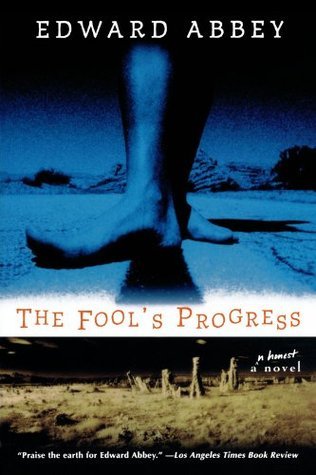
The Fool's Progress
Book Description
A man on the edge of despair takes you on a wild journey through the American Southwest, searching for meaning amid chaos. Henry Lightcap, a disillusioned drifter, grapples with the weight of broken relationships and personal demons. As he travels through rugged landscapes and encounters vibrant characters, the lines between freedom and folly blur. With each decision, the tension escalates—will he find redemption or spiral further into madness? Amidst the striking beauty and haunting isolation, can one man's quest unveil the true essence of life and love, or will it lead to his ultimate undoing? What happens when the fool finally faces the truth?
Quick Book Summary
"The Fool's Progress" by Edward Abbey is a deeply personal, semi-autobiographical novel about Henry Lightcap, a disenchanted and rebellious loner. When his third marriage collapses, Henry embarks on a cross-country journey back to his childhood home in West Virginia, propelled by a blend of rage, nostalgia, and existential despair. Along the way, he revisits significant places and people from his past, reflecting on a life shaped by environmental destruction, personal failures, and alienation from modern society. Abbey weaves biting humor and keen observations of the American landscape into a story that explores the search for meaning amid chaos. Henry’s odyssey becomes both an escape and a confrontation—raising questions about whether redemption, connection, or understanding are truly attainable for someone at the margins of society.
Summary of Key Ideas
Table of Contents
Search for Meaning and Redemption
Henry Lightcap’s life is defined by disappointment and restlessness. Facing the collapse of his third marriage, he reacts impulsively by shooting his refrigerator and setting out from Arizona to his childhood home in West Virginia. This journey, both physical and emotional, serves as Henry’s way of confronting his inner turmoil. From the outset, Henry is cynical, caustic, and fiercely independent, challenging the structures of modern society and searching—often unsuccessfully—for a sense of purpose or connection.
Alienation and Anti-Modernity
Throughout his travels, Henry encounters a tapestry of American landscapes, from stark deserts to green mountains. Abbey’s vivid descriptions evoke both the harsh beauty and the environmental decline of these places. Henry’s appreciation for the land is juxtaposed with his criticism of the encroachment of civilization, reflecting Abbey’s own environmentalism. These moments in nature offer Henry fleeting solace as he wonders whether belonging can be found amidst isolation and destruction.
Connection to Nature and Place
The people Henry meets—old lovers, friends, and strangers—serve as mirrors to his own failures and ideals. Relationships are a recurring motif: Henry’s struggle to sustain intimacy is shadowed by deep loss and an almost willful self-sabotage. Through these interactions, Abbey explores the limits of love and the human capacity for forgiveness, as Henry repeatedly seeks, resists, and mourns connection.
The Burden of Freedom and Individualism
At its core, the novel is a critique of modernity and a celebration of rugged individualism. Henry’s journey is laced with dark humor and philosophical musings on freedom, rebellion, and the outsider’s place in an increasingly conformist society. Yet, Abbey doesn’t romanticize his protagonist’s detachment; instead, he exposes the pain and emptiness that often accompany a solitary existence. The story questions whether true freedom leads to fulfillment or further alienation.
The Complexity of Love and Loss
In the end, Henry’s odyssey becomes a reckoning with his own myth of self-sufficiency. Confronted by memories and mortality, he is forced to decide whether to embrace vulnerability or remain adrift. Abbey’s narrative melds the tragic and the comic, ultimately suggesting that meaning may only be glimpsed through the acceptance of life’s inherent contradictions. "The Fool’s Progress" leaves readers pondering the value of the journey, even when it leads nowhere definitive.
Download This Summary
Get a free PDF of this summary instantly — no email required.





